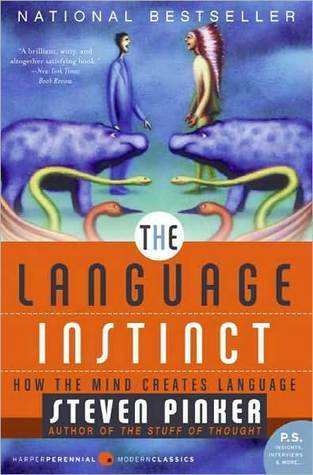obsolete.) Before the vowel shift, mouse had been pronounced “mooce”; the old “oo” turned into a diphthong. The gap left by the departed “oo” was filled by raising what used to be an “oh” sound; what we pronounce as goose had, before the Great Vowel Shift, been pronounced “goce.” That vacuum, in turn, was filled by the “o” vowel (as in hot, only drawn out), giving us broken from what had previously been pronounced more like “brocken.” In a similar rotation, the “ee” vowel turned into a diphthong; like had been pronounced “leek.”
Welcome back. Just a moment while we sign you in to your Goodreads account.


